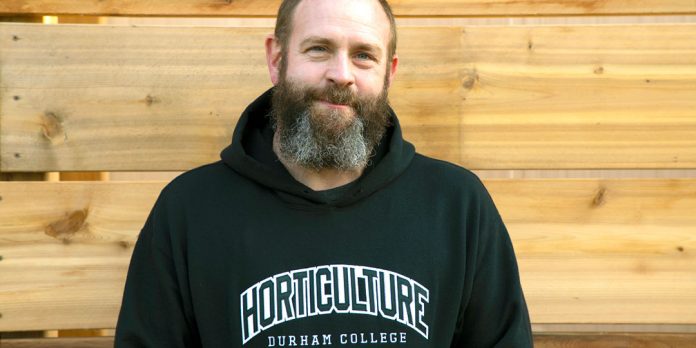When many people picture a farm, they imagine rolling fields and large tractors in the middle of the countryside, not a small plot of land in at the busy corner of Harwood Avenue and Rossland Road in Ajax.
That’s where Durham College is creating an urban farm over the next few months, known as the Barrett Centre of Innovation in Sustainable Urban Agriculture.
At the farm, graduates of the Horticulture Technician program will grow crops that provide food for the local community.
This could include cold, hardy and tough crops such as spinach, kale and chard, along with quick-growing crops, such as radishes.
Shane Jones, the farm manager and a faculty member in the School of Hospitality and Horticulture Science, says he wants to hear from locals first.
“Our intention is to look around and invite the community to tell us what they want since this food is supposed to go back to the community,” he said.
The farm will have a hoop house, a type of passive solar greenhouse. Compared to a greenhouse with artificial heat control, a hoop house controls temperature through collecting and trapping sunlight.
“It’s a structure with a plastic skin that allows us to extend our growing season,” he said. “With the right management and crops, we can probably extend our growing season to 11 months a year.”
The college has partnered with Durham Region, which provided the land, and the Barrett Family Foundation, which contributed $5 million. The foundation is a trust established to create initiatives in post-secondary in the STEM (science, technology, engineering and math) fields.
Jones stepped away from his role as coordinator of the Horticulture Technician and Food and Farming program so he could take on the position. He is currently only teaching one course per semester so he can focus on his role as farm manager.
He says having graduates work on the farm will give them experience in building a small farm in an urban setting.
“The hope would be that it would spawn new farms,” he said.
There’s a possibility that some of the program’s work-study students already working on the Whitby campus farm may get the opportunity to help out, according to Jones.
“We want to make sure we’re using only those (graduates) to prove the point that those who are past the point of learning their trade can put it into practice,” he said.
As for the future of the farm, Jones says it may not stay at this location forever but he’s hopeful it will continue somewhere in Durham Region.
”I have no doubt in my mind that as we prove the model and make it successful within the community, it will continue on in some form no matter what,” he said.
Jones hopes this project will get the community better involved with where their food comes from, the work that goes into it and the need for greater food security.
He says the first crops are expected to be harvested this spring.




